Manoj Jarange, the prominent Maratha community leader, concluded his hunger strike after achieving significant government commitments. The five-day fast drew massive public attention and forced state officials to address longstanding reservation concerns. His decision to call off protest activities marks a pivotal moment in Maharashtra’s ongoing caste-based reservation debates.
Understanding the Background Behind This Historic Protest
The Maratha community has fought for reservation benefits within Maharashtra’s educational and employment sectors for decades. Jarange emerged as their most vocal advocate, organizing multiple hunger strikes and mass demonstrations throughout recent years. His influence among community members has grown substantially through persistent advocacy and grassroots organizing efforts.
Previous protests by Jarange resulted in temporary government assurances that failed to produce concrete policy changes. The community felt betrayed by repeated delays and bureaucratic obstacles preventing implementation of promised reservation benefits. This latest hunger strike represented their final attempt to secure meaningful government action.
The timing proved particularly strategic as state elections approach and political parties seek community support. Maratha voters represent a significant demographic that could influence electoral outcomes across multiple constituencies. Government officials recognized the need to address these concerns before facing voters in upcoming polls.
Breaking Down the Maratha Quota Demands and Agreements
The Maratha community sought inclusion within existing reservation frameworks that benefit other backwards classes statewide. Their demands centred on securing educational opportunities and government employment through dedicated quota allocations. Community leaders argued that economic marginalisation justified their inclusion among protected groups.
Key aspects of the negotiated agreement include:
- Immediate implementation of Maratha reservation policies across state institutions
- Establishment of special committees to oversee quota allocation processes
- Creation of scholarship programs for Maratha students in higher education
- Reserved positions in state government departments and public sector enterprises
- Timeline commitments for policy implementation within specific deadlines
The government also agreed to address legal challenges that previously blocked reservation implementations through appellate courts. State attorneys will defend Maratha quota provisions against constitutional challenges filed by opposing groups. These legal protections aim to prevent future policy reversals through judicial interventions.
Political Implications of Jarange’s Successful Campaign
This victory demonstrates the power of sustained grassroots organising and strategic political pressure within democratic systems. Jarange’s ability to mobilise thousands of supporters forced government officials to prioritise Maratha concerns over other competing interests. His success could inspire similar movements among other marginalised communities seeking reservation benefits.
Opposition parties criticised the government’s concessions as election-year pandering designed to secure votes rather than address systemic inequalities. They argue that expanding reservation categories without addressing underlying economic issues represents shortsighted policy making. Some leaders questioned whether sufficient government resources exist to fulfil these new commitments effectively.
Meanwhile, government officials portrayed the agreement as evidence of their commitment to social justice and inclusive development policies. They emphasised their willingness to listen to community concerns and implement necessary reforms through democratic processes. This narrative supports their broader political messaging about responsive governance and social equity.
Community Response and Widespread Celebration Across Maharashtra
Maratha community members celebrated throughout Maharashtra following news of the successful negotiations and protest’s conclusion. Villages organised traditional festivities while urban areas witnessed spontaneous demonstrations expressing gratitude toward Jarange and his supporters. The collective relief was palpable after years of uncertainty regarding their reservation status.
Community elders praised Jarange’s dedication and sacrifice during this prolonged struggle for recognition and rights. Young people particularly expressed hope that new educational opportunities would enable social mobility previously denied to their families. Women leaders emphasised how reservation benefits could improve their daughters’ prospects for higher education and careers.
However, some community members remained cautious about celebrating prematurely, given previous government failures to implement promised policies. They emphasised the importance of maintaining vigilance and continued advocacy to ensure actual policy implementation occurs. Trust between the community and government officials requires rebuilding through concrete actions rather than words alone.
What This Victory Means for Other Marginalized Groups
Jarange’s success provides a blueprint for other communities seeking reservation benefits through organised advocacy and sustained political pressure. His strategic approach combined traditional protest methods with modern media outreach to maximize public attention. Other community leaders are studying his tactics for potential application to their own causes.
Legal experts note that expanding reservation categories creates complex constitutional questions about equality and proportional representation principles. Courts must balance competing claims from different groups while maintaining overall system fairness and effectiveness. This case could establish precedents affecting future reservation disputes across multiple states.
The agreement also highlights ongoing tensions between merit-based selection and affirmative action policies within Indian educational and employment systems. Critics argue that expanding quotas reduces opportunities for general category candidates while supporters emphasize historical injustices requiring corrective measures.
Looking Forward: Implementation Challenges and Future Monitoring
Despite achieving this significant victory, Jarange emphasized that his movement will continue monitoring government compliance with negotiated agreements. Community organizations plan to establish oversight mechanisms ensuring timely implementation of promised reservation benefits. Any delays or reversals could trigger renewed protest activities across Maharashtra.
Government officials face the complex task of restructuring existing quota systems to accommodate Maratha reservations without violating constitutional limits. Legal challenges from other groups seem inevitable, requiring careful navigation of competing interests and judicial oversight. The success of this agreement depends largely on effective administrative implementation and political will.
The broader implications extend beyond Maharashtra as other states with significant Maratha populations observe these developments closely. Similar movements could emerge elsewhere if this implementation proves successful and sustainable over time. Jarange’s victory represents both an end and a beginning in the ongoing struggle for social justice and equal opportunities.

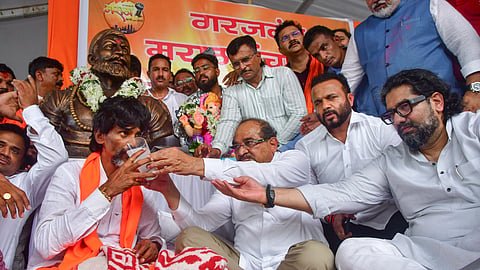
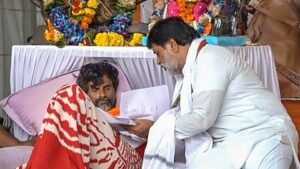
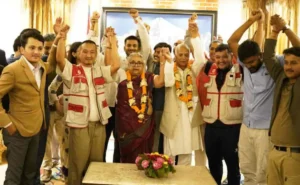
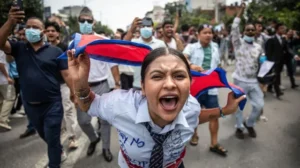
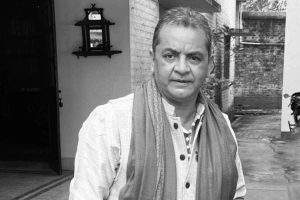


Be First to Comment